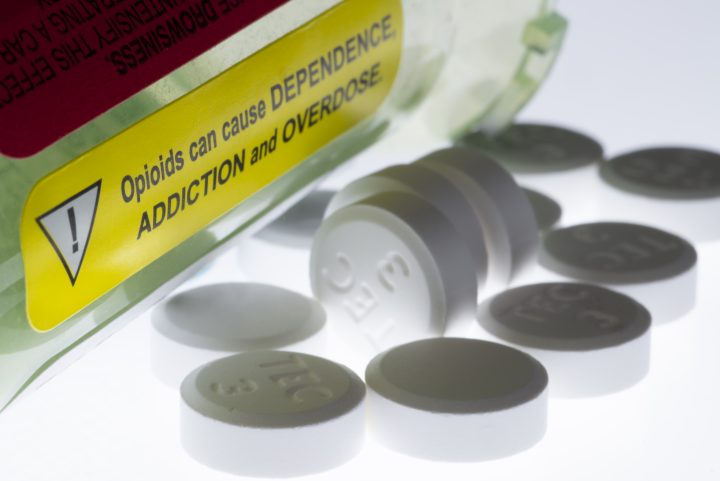New findings from the Middlesex-London Health Unit (MLHU) show the region had a sharp rise in deaths and hospital visits related to opioid use amid the COVID-19 pandemic.

The findings were shared in the latest report from the MLHU’s Opioid Crisis Working Group. It’s on the agenda for Thursday’s Board of Health meeting.
The report focused on trends observed between January 2020, about two months shy of when a global pandemic was declared, and June 2021.
“Prior to the start of the COVID-19 pandemic, both opioid-related emergency department (ED) visits and deaths had been increasing across Ontario and in the Middlesex-London region,” said the report. “Unfortunately, these patterns of increased ED visits and deaths continued once the COVID-19 pandemic began in 2020.”
Between January 2020 and June 2021, the amount of opioid-related emergency department visits tripled from 37 to 113 in the Middlesex-London region.
The region’s rise was far sharper than what was observed across the province, with Ontario recording its amount of visits rising from 757 to 1,500 between January 2020 and June 2021, marking a 98 per cent increase.
As for deaths, an average of eight each month occurred in the Middlesex-London region. The monthly average rose to 12 deaths between January and June of 2021. According to Public Health Ontario’s interactive opioid tool, the 17 deaths reported in March 2021 is the highest monthly amount on record for the region.
- B.C. to ban drug use in all public places in major overhaul of decriminalization
- 3 women diagnosed with HIV after ‘vampire facials’ at unlicensed U.S. spa
- Solar eclipse eye damage: More than 160 cases reported in Ontario, Quebec
- ‘Super lice’ are becoming more resistant to chemical shampoos. What to use instead
Province-wide, Ontario had a 45 per cent increase between January 2020 and June 2021 with its amount of deaths rising from 152 to 220.
“The opioid crisis has continued to escalate through the COVID-19 pandemic, potentially exacerbated by challenges for clients to access many in-person services,” the report added.
The report also provided updates on several local interventions aimed at curbing the opioid crisis in London and Middlesex County.
The MLHU says the use of needle syringe programs increased steadily since 2019, rising from 1 million sterile syringes and needles distributed that year to 1.9 million being distributed in 2021.
8,900 naloxone kits were distributed and more than 1,200 were used in 2021, nearly double the numbers recorded in 2019.
The report also noted a slight decrease in visits to the Carepoint Consumption and Treatment site on King Street, formerly known as the temporary overdose prevention site.
Operated by the Regional HIV/AIDS Connection, Carepoint aims to reduce harms associated with drug use.
“Throughout the pandemic there was a slight decrease in visits to the CTS site and an overall increase in opioid overdoses and referrals to services such as primary care, housing, addiction services, mental health, access to food, wound care, and testing,” the report said.
2019 had more than 28,800 visits, 1,576 referrals and 171 overdoses while 2020 had just over 20,000 visits, 810 referrals and 126 overdoses. In 2021, there were 14,013 visits, 13,932 referrals and 237 overdoses.
While year-over-year trends were not provided, the report did share select program outcomes for London InterCommunity Health Centre’s Safer Supply program, which provides a regulated supply of opioid medication to adults who use criminalized drugs and are at high risk of overdose and other harms.
More than 280 people are supported by the program and the MLHU says it has led to reductions in emergency department visits, injection drug use, survival sex work and criminal justice system involvement for those supported by Safer Supply, along with improved food and income security.
Dr. Alex Summers, the MLHU’s medical officer of health, is expected to present the findings during Thursday evening’s Board of Health meeting.










Comments